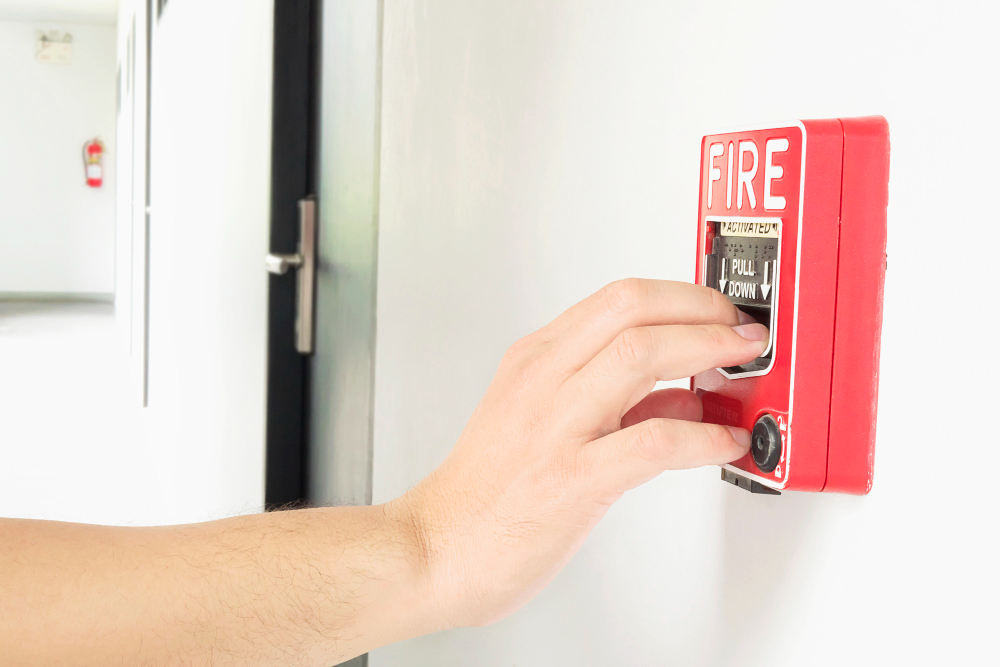Obtaining a Fire Safety Certificate is not just a best practice but a legal obligation for building owners and businesses.
Legal Obligations:
The Regulatory Reform (Fire Safety) Order 2005 lays the foundation for fire safety regulations in the United Kingdom, including London. This legislation mandates that anyone who owns or manages a non-domestic property must take responsibility for fire safety and adhere to a set of legal obligations. The Fire Safety Certificate, often a requirement under this order, is a testament to a property owner’s commitment to maintaining a safe environment.
Property owners must conduct thorough fire risk assessments, identifying potential hazards and implementing measures to mitigate risks. This includes establishing evacuation procedures, maintaining firefighting equipment, and ensuring the installation of suitable fire detection and warning systems. Failure to comply with these regulations not only jeopardizes the safety of occupants but also exposes property owners to legal consequences.
Procedures for Obtaining a Fire Safety Certificate:
The process of obtaining a Fire Safety Certificate in London involves a series of meticulous steps designed to assess and ensure compliance with fire safety standards.
-
Conducting a Fire Risk Assessment: The first step is to conduct a comprehensive fire risk assessment. This involves identifying potential fire hazards, evaluating the means of escape, and assessing the effectiveness of existing fire safety measures. Property owners often enlist the services of qualified fire safety professionals or engineers to conduct these assessments.
-
Implementing Necessary Measures: Based on the findings of the fire risk assessment, property owners must implement necessary measures to address identified risks. This may include upgrading fire doors, installing sprinkler systems, and ensuring the proper maintenance of fire extinguishers. The goal is to create a fire-safe environment that adheres to legal standards.
-
Submission of the Fire Safety Certificate Application: Once the required measures are in place, the property owner can proceed to submit an application for a Fire Safety Certificate to the local fire authority. This application typically includes detailed documentation of the fire risk assessment, the implemented safety measures, and any relevant plans or specifications.
-
Verification and Inspection: Local fire authorities may conduct thorough inspections to verify the information provided in the application. This step ensures that the property complies with fire safety regulations and that the measures implemented are effective. Engineers often play a crucial role in this phase, providing expertise to validate the safety measures in place.
-
Issuance of the Fire Safety Certificate: Upon successful verification, the local fire authority issues the Fire Safety Certificate. This document serves as official recognition that the property meets the required fire safety standards. It should be prominently displayed within the premises, and a copy may need to be provided to relevant authorities upon request.
The Role of Engineers in Ensuring Compliance:
Engineers play a pivotal role in the entire process of obtaining a Fire Safety Certificate. Their expertise is crucial during the fire risk assessment phase, where they can identify potential hazards, recommend appropriate safety measures, and ensure that the property aligns with legal requirements.
Additionally, engineers may be involved in the verification and inspection phase, providing technical insight to the local fire authorities. Their role extends beyond a mere compliance check; engineers contribute valuable expertise to enhance the overall fire safety of the property, ensuring that it goes beyond meeting minimum standards.
In conclusion, understanding the legal obligations and procedures for obtaining a Fire Safety Certificate in London is essential for property owners and businesses. By complying with these regulations and involving qualified engineers, individuals contribute to creating safer environments for residents and workers alike. The Fire Safety Certificate becomes not just a legal requirement but a testament to a commitment to the well-being of the community in this bustling metropolis.




